Can a Rescue Dog Become a Service Dog?

When looking for a service dog, some people will gravitate towards a specific breed or seek out an organization that specializes in training service dogs. So what about dogs that were found as a stray, were abandoned, or surrendered? Are these so-called rescue dogs able to become service dogs? The simple answer is: yes!
As defined in the Americans with Disabilities Act (ADA) service dogs don’t need to be a particular breed, obtained from a specific breeder, or found at a training site. Rescue dogs can be just as talented to become service dogs, given that they have the temperament needed to serve their handlers. If they have the ability to be trained and learn the specific tasks needed by their handler, they can earn the title of a service dog.
Show everyone that the rights of your Service Dog should be respected. Get your Service Dog registered below.
What temperament does a rescue dog need to become a service dog?
All service dogs need to have a certain temperament in order to serve their owners. This typically includes:
- Have a calm demeanor
- Be eager to please
- Possess a strong ability to learn
Service dogs must have no history of aggression, be patient during training, and exhibit no signs of distress. They need to remain under control while out in public, ignore distractions, and continue to follow all directions until their handler tells them otherwise. If a rescue dog displays these specific traits, it may excel in training to become a service dog.
Once training begins and the rescue dog appears stressed or anxious, isn’t able to perform certain tasks, or doesn’t appear to be enjoying its work, it may not be a good fit for service work.
Any dog trained to be a service dog should thoroughly enjoy the job and performing the tasks needed.
Rescue dogs that have a history of abuse or neglect may struggle with training but still may have the ability to learn with extra time and patience.
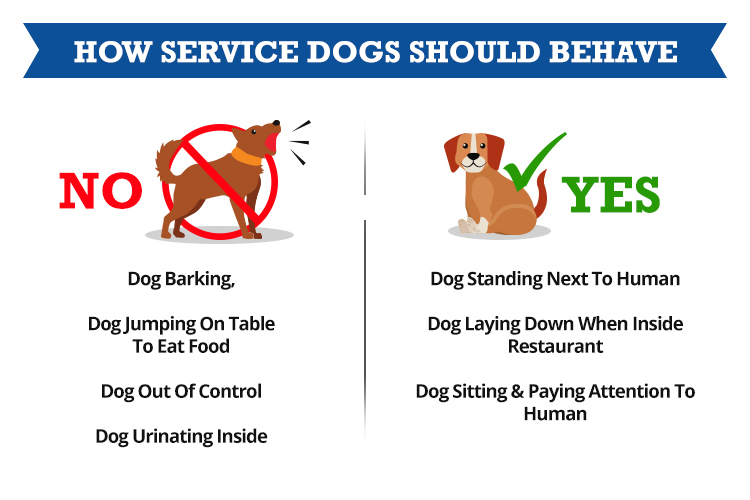

What commands do they need to learn?
The tasks that a service dog should learn depends on the handler’s needs. Each disability has different demands, so the service dog’s training has to cater to these requirements. For example, a person with a physical disability may need assistance opening the refrigerator, while a person with a mental illness may need their dog to fetch their medication. Example tasks that handlers may teach their dogs are:
- Opening doors
- Grabbing items for their handler
- Guiding their handler through their house and out in public
- Detecting an oncoming medical episode
- Fetching the mail
- Sensing a panic attack
- Providing pressure treatment for anxiety
- Carrying items up and down the stairs
This is just the beginning of what a service dog can do to assist their handler. Each handler has different needs, which means that no two service dogs will need to meet the same requirements. A handler should be aware of what their dog can do to assist them and implement their training accordingly.
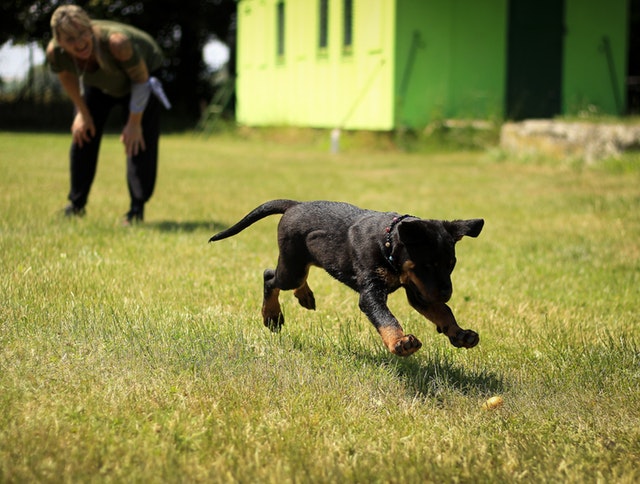
Where to train a service dog?
In order to properly train a service dog, a handler can hire a trainer or train the dog on their own. If a handler decides to use a trainer, they can find a local trainer that specializes in service dog training. Sometimes, these trainers will take the dog for a period of time to teach them everything they need to know, and then return them to their handler upon the completion of their training. Other times, these trainers will work directly with the handler and their dog.
If a handler opts to train the dog on their own, there are many resources that can be used. A simple Google search will find basic training techniques, commonly taught tasks, and effective training methods. Some handlers use YouTube videos to assist with training, while others use books and online articles. For those who use the latter, examples of training books are:
- “Training Your Own Full Potential Service Dog” by Lelah Sullivan
- “Training Your Own Service Dog and Psychiatric Service Dog Bundle” by Max Matthews
- “The Ultimate Service Dog Training Manual” by Keagen J. Grace
- “A Dog Training Manual For People with Disabilities” by Stewart Nordensson
All of the aforementioned books provide valuable tips and advice for training a rescue dog to become a service dog. Whether you choose to train your dog on your own or use a trainer, remember that this type of training will take time, effort, and a lot of patience. However, the effort will pay off once you see your dog providing the tasks you need to help make your daily life just a little bit easier.
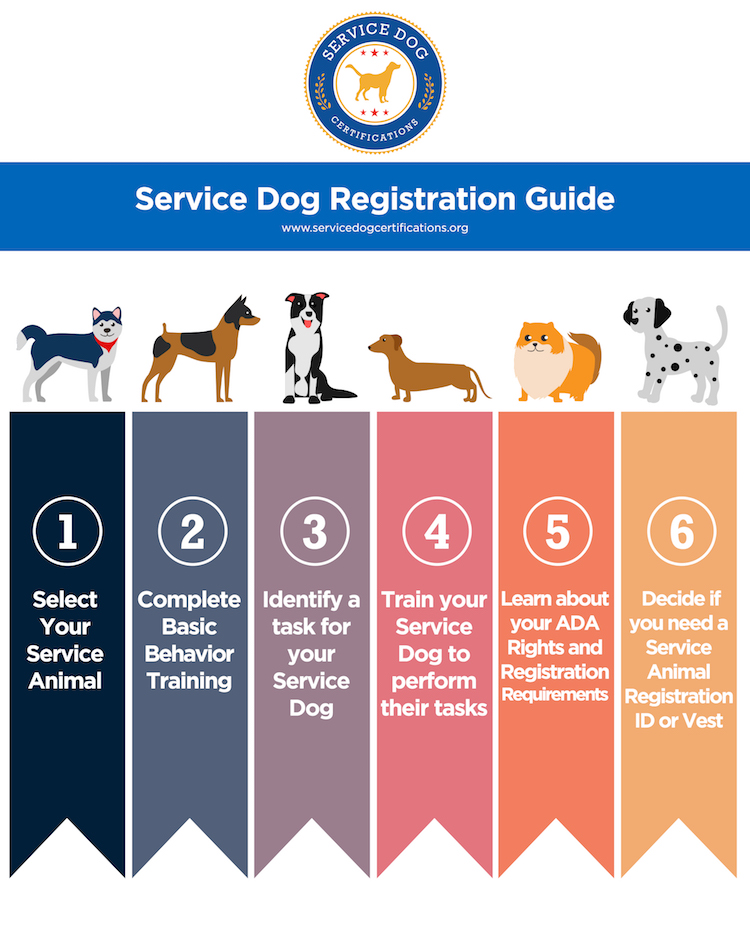

About the Author: The writing team at Service Dog Certifications is made up of folks who really know their stuff when it comes to disability laws and assistance animals. Many of our writers and editors have service dogs themselves and share insights from their own experiences. All of us have a passion for disability rights and animals.
3 comments
Leave a Reply Cancel reply
Latest Posts
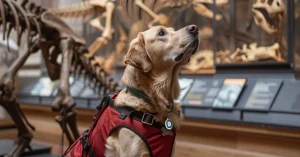
Can you bring a service dog to a museum?
Yes, you can bring your service dog to the museum! All the major U.S. museums welcome guests with service animals in accordance with the Americans with Disabilities Act (ADA). There are some areas, however, that might be off-limits. Here’s what you should know if you plan to spend a day at the museum with your […]

Read More
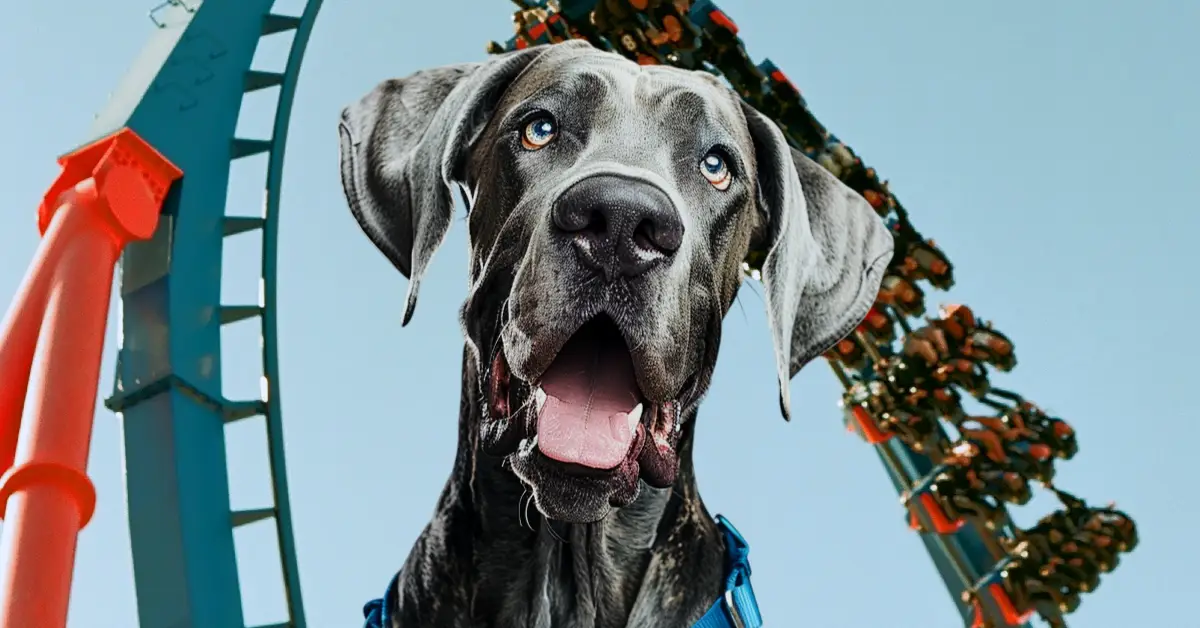
How to Bring a Service Dog to Six Flags Magic Mountain
Service dogs are welcome at Six Flags Magic Mountain so long as they are, according to Six Flags, “trained to do work or perform tasks for people with disabilities.” Of course, your dog must be housebroken and remain on a leash or harness and under your control while at the park — and the park […]

Read More
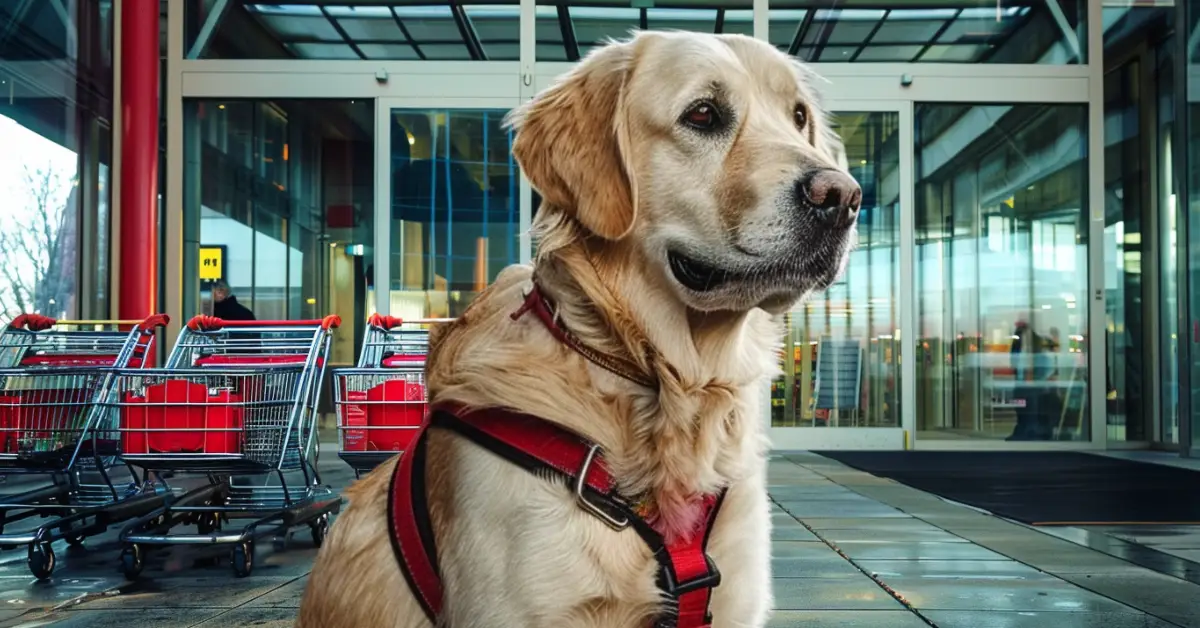
When Stores Can Refuse Your Service Dog
According to the Americans with Disabilities Act (ADA), service dogs should be allowed into any store most of the time. A store owner can legally exclude a service dog if they are actively growling, snapping at, or frightening customers, or if the dog is obviously out of the control of its owner. Ordinary behaviors — […]

Read More

I would. Like yo have my dog trained she is excellant I have had many
Our service dog was just put down two weeks ago. 15 years old, we got her from a animal shelter 13 years ago. She served my father for 4 years and then my husband for 8. Yes rescue dogs make wonderful and loving service dogs.
Two rescue dogs, living with us together, ended up being successful Therapy Companions for a nursing home.
My mother-in-law was living in a nursing home so I visited here almost everyday and got permission to bring my two dogs and they knew what to do WITHOUT any training!! They walked around helping patients, eventually off leash because they were so amazing!! They knew what to do!!!
The Doberman-Shepard mix after a while did not even want to leave because of her job!